Scientific Name
Ulmus campestris
Trade Name
English elm
Family Name
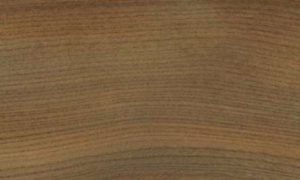
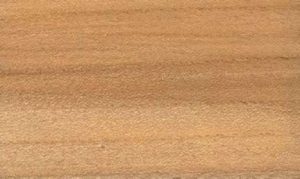
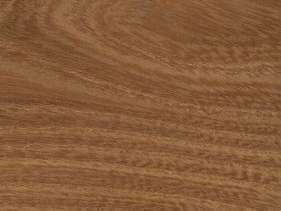
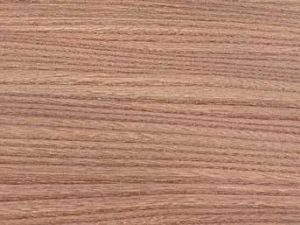
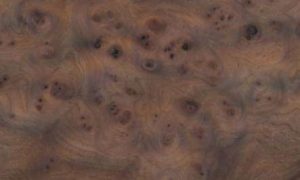
Common Names
Elm, English elm, Nave Elm, Red Elm, Vanlig Alm
Regions of Distribution
Western Europe
Countries of Distribution [VIEW MAP]
United Kingdom
Common Uses
Bedroom suites, Bent Parts, Boat building, Cabinetmaking, Canoes, Caskets, Chairs, Decorative veneer, Dining-room furniture, Docks, Dockwork, Domestic flooring, Drawer sides, Figured veneer, Fine furniture, Flooring, Furniture , Harbor work, Kitchen cabinets, Lifeboats, Living-room suites, Marine construction, Office furniture, Parquet flooring, Radio – stereo – TV cabinets, Shipbuilding, Sub-flooring, Turnery, Utility furniture, Veneer, Wharf construction
Environmental Profile
| Status has not been officially assessed |
Heartwood Color
| Brown | ||||||||||||
| Yellow | ||||||||||||
| Green | ||||||||||||
| Brown |
Dull
Sapwood Color
| Brown | ||||||||||||
| Red | ||||||||||||
| Clearly differentiated from the heartwood |
Grain
| Figure | ||||||||||||
| Crossed | ||||||||||||
| Irregular |
| Irregular | ||||||||||||
| Crossed |
Produces attrative figure
Texture
| Medium | ||||||||||||
| Fine | ||||||||||||
| Coarse |
Luster
| Medium |
Natural Durability
| Perishable | ||||||||||||
| Durable | ||||||||||||
| Non-durable | ||||||||||||
| Very little natural resistance | ||||||||||||
| Susceptible to attack by fungi and termites |
Odor
| Has an odor | ||||||||||||
| No specific smell or taste |
Kiln Schedules
| Schedule A: United Kingdom |
Drying Defects
| Checking | ||||||||||||
| Distortion | ||||||||||||
| Expect splits | ||||||||||||
| Distortion (twist/warp) is likely | ||||||||||||
| Collapse | ||||||||||||
| Checking |
Ease of Drying
| Thick Stock Requires Care | ||||||||||||
| End-Coating | ||||||||||||
| Moderately Difficult to Difficult | ||||||||||||
| Dries at a fairly rapid rate |
Closely spaced stickers and heavy weighting of piles have been suggested to reduce drying degrade
Tree Size
| Bole length is 30-40 m | ||||||||||||
| Tree height is 10-20 m | ||||||||||||
| Tree height is 20-30 m | ||||||||||||
| Trunk diameter is 100-150 cm | ||||||||||||
| Trunk diameter is 150-200 cm |
Certified Source
| Certified Source |
Comments
Often located in hedgerows. Wood at center is often unsound
Blunting Effect
| Blunting effect on machining is moderate |
Boring
| Very good to excellent results | ||||||||||||
| Fairly easy to very easy | ||||||||||||
| Difficult |
Carving
| Gluing is often difficult |
Cutting Resistance
| Easy to saw | ||||||||||||
| Difficult to saw |
Tends to bind on saws.
Gluing
| Fairly Easy to Very Easy | ||||||||||||
| Fair to Good Results | ||||||||||||
| Carefully Controlled Conditions | ||||||||||||
| Good properties |
Mortising
| Difficult to mortise |
Moulding
| Fair to Good Results | ||||||||||||
| Fairly Easy to Very Easy | ||||||||||||
| Requires very sharp cutting edges |
Tends to pick-up in moulding operations.
Movement in Service
| Fair to Good Stability – Medium Movement | ||||||||||||
| Excellent Stability – Small Movement | ||||||||||||
| Moderate dimensional stability after seasoning | ||||||||||||
| Medium |
Nailing
| Fair to Good Results | ||||||||||||
| Fairly Easy to Very Easy | ||||||||||||
| Satisfactory nailing properties | ||||||||||||
| Material is reported to nail without splitting |
Planing
| Fair to Good Results | ||||||||||||
| Fairly Difficult to Very Difficult | ||||||||||||
| Woolly | ||||||||||||
| Difficult to plane |
Resistance to Impregnation
| Sapwood is permeable | ||||||||||||
| Heartwood is moderately resistant |
Response to Hand Tools
| Cutting edges should be kept sharp to prevent torn rays |
Routing & Recessing
| Very sharp cutting edges are required to produce a smooth surface |
Sanding
| Fair to Good Results | ||||||||||||
| Fairly Difficult to Very Difficult |
Screwing
| Fair to Good Results | ||||||||||||
| Fairly Easy to Very Easy | ||||||||||||
| Reported to screw without splitting |
Turning
| Very Good to Excellent Results | ||||||||||||
| Fairly Easy to Very Easy |
The material is rather difficult to turn and requires very sharp cutting edges for best results
Steam Bending
Team bending properties are rated as rather poor
Polishing
| Very Good to Excellent Results | ||||||||||||
| Fairly Easy to Very Easy | ||||||||||||
| Fair to Good Results | ||||||||||||
| High finish |
Staining
| Fairly Easy to Very Easy | ||||||||||||
| Stains well |
Varnishing
| Very Good to Excellent Results |
Strength Properties
| Hardness (side grain) = medium | ||||||||||||
| Crushing strength = low | ||||||||||||
| Bending strength (MOR) = medium |
High Density
Numerical Data
| Item | Green | Dry | English |
| Bending Strength | 5302 | 8989 | psi |
| Density | 33 | lbs/ft3 | |
| Hardness | 804 | lbs | |
| Impact Strength | 25 | 23 | inches |
| Maximum Crushing Strength | 2264 | 4545 | psi |
| Shearing Strength | 1715 | psi | |
| Stiffness | 782 | 1049 | 1000 psi |
| Work to Maximum Load | 9 | 10 | inch-lbs/in3 |
| Specific Gravity | 0.53 | ||
| Weight | 37 | 32 | lbs/ft3 |
| Radial Shrinkage | 4 | % | |
| Tangential Shrinkage | 6 | % | |
| Item | Green | Dry | Metric |
| Bending Strength | 372 | 632 | kg/cm2 |
| Density | 528 | kg/m3 | |
| Hardness | 364 | kg | |
| Impact Strength | 63 | 58 | cm |
| Maximum Crushing Strength | 159 | 319 | kg/cm2 |
| Shearing Strength | 120 | kg/cm2 | |
| Stiffness | 54 | 73 | 1000 kg/cm2 |
| Work to Maximum Load | 0.63 | 0.70 | cm-kg/cm3 |
| Specific Gravity | 0.53 | ||
| Weight | 592 | 512 | kg/m3 |
| Radial Shrinkage | 4 | % |
References
HMSO, 1981. Handbook of Hardwoods, 2nd Edition. Revised by R.H. Farmer. Department of the Environment, Building Research Establishment, Princes Risborough Laboratory, Princes Risborough, Aylesbury, Buckinghamshire.
Lavers, G.M. 1966. The Strength Properties of Timbers. Forest Products Research Bulletin, No. 50. Ministry of Technology, Her Majesty’s Stationery Office, London.
Lincoln, W.A. World Woods in Color. Linden Publishing Co. Inc, Fresno, California